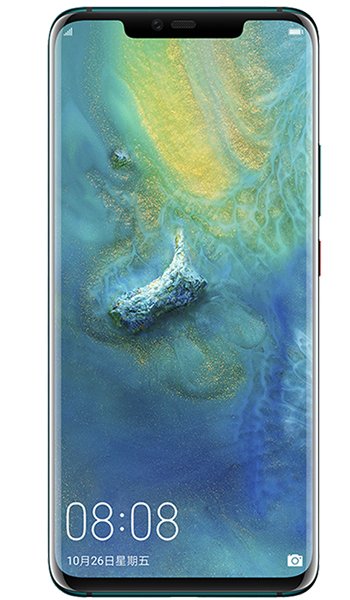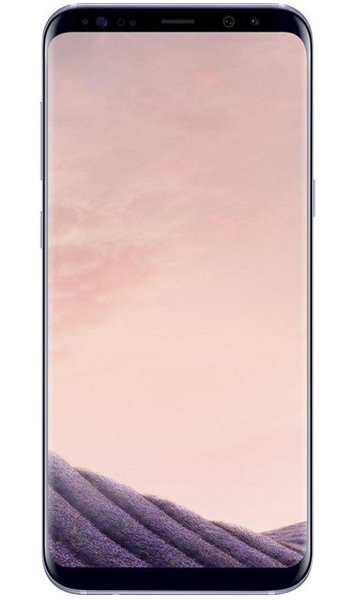Huawei Mate 20 Pro vs Samsung Galaxy S8+ Comparison and Differences
Smartphone 1

Huawei Mate 20 Pro
Smartphone 2

Samsung Galaxy S8+
Smartphone 3
Huawei Mate 20 Pro or Samsung Galaxy S8+ Specs Comparison
or
 Common specs
Common specs
| Brand and model | Huawei Mate 20 Pro | Samsung Galaxy S8+ | |
| Rating | (+) | (+) | |
| Release date | 2018, October | 2017, March | |
| Dimensions (HxWxD) | 157.8 x 72.3 x 8.6 mm | 6.21 x 6.21 x 2.85 in | 159.5 x 73.4 x 8.1 mm | 6.28 x 6.28 x 2.89 in | |
| Weight | 189 g | 6.67 oz | 173 g | 6.1 oz | |
| Body Build | Front/back glass & aluminum frame | Front/back glass (Gorilla Glass 5), aluminum frame | |
| Case | buy from Amazon | buy from Amazon | |
| Colors | Emerald Green, Midnight Blue, Twilight, Pink Gold, Black | Midnight Black, Orchid Gray, Arctic Silver, Coral Blue, Maple Gold, Rose Pink | |
| Battery | 4200 mAh, Non-removable Li-Po | 3500 mAh, Non-removable Li-Ion | |
| Approximate price | 880 EUR | 470 EUR | |
| Check price | from Amazon | from Amazon |
 Screen
Screen
| Technology | AMOLED | Super AMOLED | |
| Touchscreen | capacitive touchscreen | capacitive touchscreen | |
| Display colors | 16M | 16M | |
| Screen size | 6.39" in | 6.2" in | |
| Screen area | 100.2 cm2 | 98.3 cm2 | |
| Screen format | 19.5:9 (height:width) | 18.5:9 (height:width) | |
| Screen to body ratio | 87.9% | 84.0% | |
| Screen resolution | 1440 x 3120 px | 1440 x 2960 px | |
| Screen PPI /points per inch/ | 538 PPI | 529 PPI | |
| Screen protection | Corning Gorilla Glass (unspecified version) | Corning Gorilla Glass 5 | |
| Other specs | - DCI-P3 -HDR10 |
- HDR10 -3D Touch (home button only) -Always-on display |
|
| Screen protector | buy from Amazon | buy from Amazon |
 Camera and Video
Camera and Video
| Rear camera, main | 40 MP, Triple | 12 MP, Single | |
| Camera specs | -40 MP, f/1.8, 27mm (wide), 1/1.7", PDAF, Laser AF -8 MP, f/2.4, 80mm (telephoto), 1/4", PDAF, Laser AF, OIS, 3x optical zoom -20 MP, f/2.2, 16mm (ultrawide), 1/2.7", PDAF, Laser AF |
-12 MP, f/1.7, 26mm (wide), 1/2.55'', 1.4µm, OIS, dual pixel PDAF | |
| Functions | Leica optics, dual-LED dual-tone flash, panorama, HDR | LED flash, auto-HDR, panorama | |
| Video | 2160p@30fps, 1080p@60fps, 1080p@30fps (gyro-EIS), 720p@960fps | 2160p@30fps, 1080p@60fps, 720p@240fps, HDR, dual-video rec. | |
| DxOMark Main Score | 112 | ||
| DxOMark Photo | 120 | ||
| DxOMark Video | 97 | ||
| Front camera, selfie | 24 MP, Single | 8 MP, Single | |
| Specifications | 24 MP, f/2.0, 26mm (wide) | 8 MP, f/1.7, 25mm (wide), 1/3.6'', 1.22µm, AF | |
| Functions | HDR | Dual video call, Auto-HDR | |
| Video | 1080p@30fps | 1440p@30fps | |
| DxOMark Selfie Score | 75 | ||
| DxOMark Photo | 73 | ||
| DxOMark Video | 79 |
 Performance
Performance
| Operating system - OS | Android 9.0 (Pie); EMUI 9 | Android 7.0 (Nougat), upgradable to Android 8.0 (Oreo) | |
| Chipset | - HiSilicon Kirin 980 (7 nm) | - Exynos 8895 Octa (10 nm) - Qualcomm MSM8998 Snapdragon 835 (10 nm) - USA & China |
|
| CPU | - Octa-core (2x2.6 GHz Cortex-A76 & 2x1.92 GHz Cortex-A76 & 4x1.8 GHz Cortex-A55) | - Octa-core (4x2.3 GHz Mongoose M2 & 4x1.7 GHz Cortex-A53) - EMEA -Octa-core (4x2.35 GHz Kryo & 4x1.9 GHz Kryo) - USA & China |
|
| GPU | Mali-G76 MP10 | Mali-G71 MP20 - EMEA Adreno 540 - USA & China |
|
| External memory | NM (Nano Memory), up to 256GB (uses SIM 2) | microSD, up to 512 GB (uses SIM 2 slot) - dual SIM model only | |
| Internal memory | 256 GB, 8 GB RAM 128 GB, 6 GB RAM | 128 GB, 6 GB RAM 64 GB, 4 GB RAM |
 Benchmark
Benchmark
| Antutu 8 Total | 385302 | 230369 | |
| Antutu 7 Total | |||
| GeekBench 6 Single Core | 782 | 361 | |
| GeekBench 6 Multi Core | 2220 | 1212 | |
| GeekBench 6 OpenCL | 1425 | 1195 | |
| GeekBench 6 Vulkan | 3643 | 527 | |
| GeekBench 5 Single Core | 679 | 343 | |
| GeekBench 5 Multi-Core | 2320 | 1443 | |
| GeekBench 4 Single Core | 3331 | 1771 | |
| GeekBench 4 Multi-Core | 9771 | 6032 | |
| GeekBench 4 RenderScript | 7627 | 8348 | |
| GeekBench 4 Battery | 4097 |
 Communication and Connectivity
Communication and Connectivity
| SIM card | Single SIM (Nano-SIM)Hybrid Dual SIM (Nano-SIM, dual stand-by) | Single SIM (Nano-SIM)Hybrid Dual SIM (Nano-SIM, dual stand-by) | |
| Network | GSM / HSPA / LTE | GSM / HSPA / LTE | |
| Bands | -2G - GSM 850 / 900 / 1800 / 1900 - SIM 1 & SIM 2 (dual-SIM model only) -3G - HSDPA 800 / 850 / 900 / 1700(AWS) / 1900 / 2100 -4G - LTE band 1(2100), 2(1900), 3(1800), 4(1700/2100), 5(850), 6(900), 7(2600), 8(900), 9(1800), 12(700), 17(700), 18(800), 19(800), 20(800), 26(850), 28(700), 32(1500), 34(2000), 38(2600), 39(1900), 40(2300) |
-2G - GSM 850 / 900 / 1800 / 1900 - SIM 1 & SIM 2 (dual-SIM model only) -3G - HSDPA 850 / 900 / 1700(AWS) / 1900 / 2100 -4G - LTE band 1(2100), 2(1900), 3(1800), 4(1700/2100), 5(850), 7(2600), 8(900), 17(700), 20(800), 28(700) |
|
| Speed | HSPA 42.2/5.76 Mbps, LTE-A Cat21 1400/200 Mbps | HSPA 42.2/5.76 Mbps, LTE-A (5CA) Cat16 1024/150 Mbps | |
| GPRS | Yes | Yes | |
| Edge | Yes | Yes | |
| Wi-Fi | Wi-Fi 802.11 a/b/g/n/ac, dual-band, DLNA, Wi-Fi Direct, hotspot | Wi-Fi 802.11 a/b/g/n/ac, dual-band, Wi-Fi Direct, hotspot | |
| GPS | Yes, with dual-band A-GPS, GLONASS, BDS, GALILEO, QZSS | Yes, with A-GPS, GLONASS, BDS, GALILEO | |
| NFC | Yes | Yes | |
| USB | 3.1, Type-C 1.0 reversible connector, USB On-The-Go | 3.1, Type-C 1.0 reversible connector | |
| Bluetooth | 5.0, A2DP, aptX HD, LE | 5.0, A2DP, LE, aptX | |
| Harmful irradiation |
SAR - 0.67 W/kg (head) 0.97 W/kg (body) SAR EU - 0.27 W/kg (head) 1.00 W/kg (body) |
 Music and Audio
Music and Audio
| Radio | No | No | |
| Headphone jack | No | Yes | |
| Others | - 32-bit/384kHz audio -Active noise cancellation with dedicated mic |
- 32-bit/384kHz audio -Active noise cancellation with dedicated mic |
 Other features
Other features
| Sensors | - Face ID, fingerprint (under display), accelerometer, gyro, proximity, barometer, compass , Infrared port | - Iris scanner, fingerprint (rear-mounted), accelerometer, gyro, proximity, compass, barometer, heart rate, SpO2 | |
| Other extras |
- Fast battery charging 40W (70% in 30 min) -Fast wireless charging 15W -Power bank/Reverse wireless charging - IP68 dust/water resistant (up to 2m for 30 mins) |
- Samsung DeX (desktop experience support) - -ANT+ -Bixby natural language commands and dictation - Fast battery charging (Quick Charge 2.0) -Qi/PMA wireless charging (market dependent) - Samsung Pay (Visa, MasterCard certified) -IP68 dust/water proof (up to 1.5m for 30 mins) |
|
| Versions |
- Versions: G955F (Europe, Global Single-SIM); G955FD (Global Dual-SIM); G955W (Canada); G955A (AT&T); G955P (Sprint); G955T (T-Mobile); G955V (Verizon); G955R4 (US Cellular); G955U (USA Unlocked); G955 |
Reviews and Opinions on Huawei Mate 20 Pro and Samsung Galaxy S8+
If you had to recommend one of these phones to a friend, which one would it be and why? Share your arguments using the Add Opinion button!

